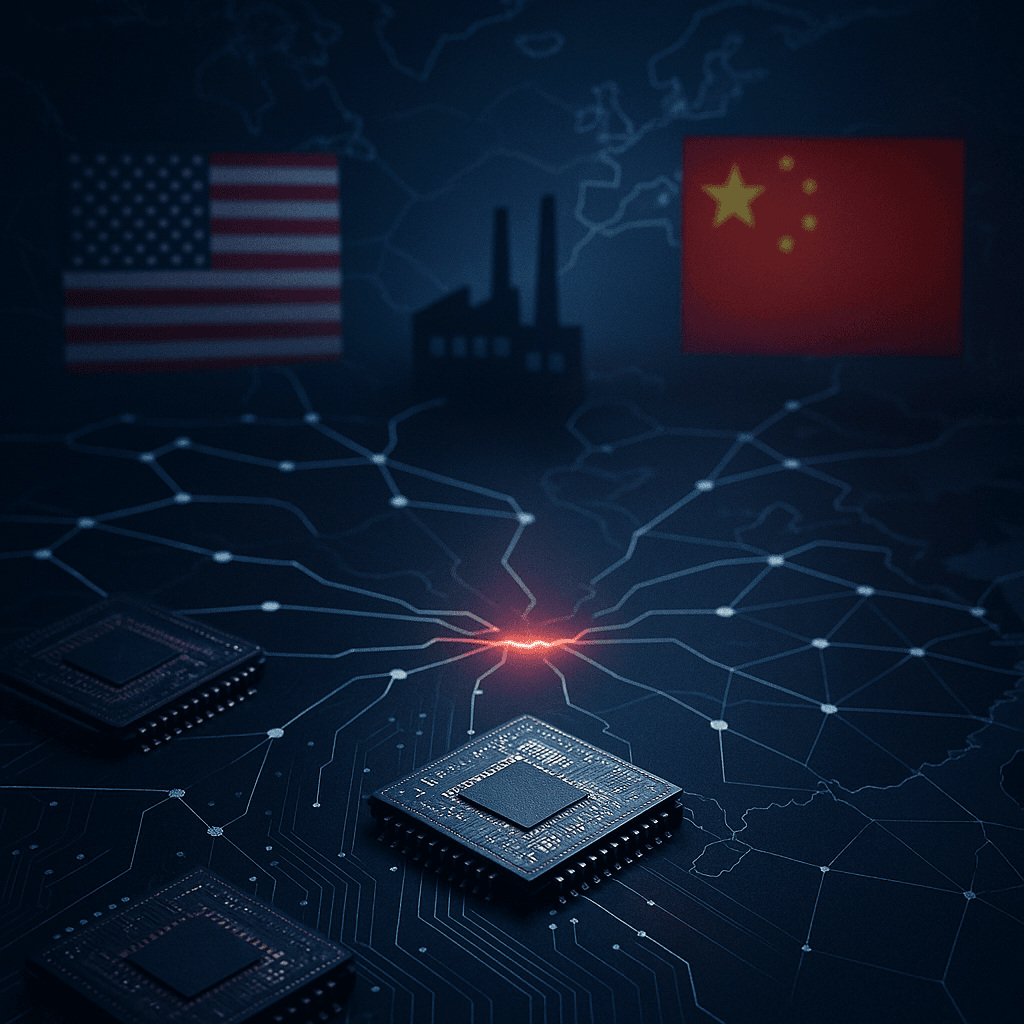Nvidia just pulled the plug on its China-specific H20 chip production line, ordering suppliers to halt manufacturing as Beijing's national security probe intensifies. The move marks a dramatic escalation in the AI chip standoff between the world's two largest economies, potentially costing Nvidia billions in lost revenue from its second-largest market.
Nvidia has ordered its entire supply chain to stop manufacturing H20 chips designed specifically for China, marking the most dramatic escalation yet in the AI chip cold war between Washington and Beijing. The semiconductor giant told key suppliers including Samsung Electronics, Arizona-based Amkor Technology, and Foxconn to immediately suspend production work on the made-for-China processors, according to The Information and Reuters reports citing industry sources. The shutdown comes just weeks after China's Cyberspace Administration summoned Nvidia executives over national security concerns and effectively banned local tech companies from purchasing the chips. Major Chinese firms including ByteDance, Alibaba, and Tencent received direct government orders to halt H20 acquisitions pending completion of Beijing's security review, sources told The Information. "We constantly manage our supply chain to address market conditions," an Nvidia spokesperson told CNBC, confirming the production halt without elaborating on the financial impact. The timing couldn't be worse for Nvidia. Just last month, CEO Jensen Huang celebrated what appeared to be a major victory when the U.S. government agreed to issue export licenses allowing H20 sales to China after an April ban. Speaking to reporters in Taiwan on Friday, Huang acknowledged Beijing's security probe but expressed surprise at the allegations. "Hopefully the response that we've given to the Chinese government will be sufficient. We're in discussions with them," Huang said according to CNBC. "As you know, [Beijing] requested and urged us to secure licenses for the H20s, for some time and I've worked quite hard to help them secure the licenses, and so hopefully this will be resolved." Beijing's concerns center on alleged "backdoor" technology that could allow remote operation of the chips. Chinese officials worry the processors contain tracking capabilities, fears amplified by requiring AI chips under export controls to include location-tracking systems. pushed back Friday, stating "The market can use the H20 with confidence" and emphasizing the chips aren't military products. "China won't rely on American chips for government operations, just like the U.S. government would not rely on chips from China," the company said in a statement to . "However, allowing U.S. chips for beneficial commercial business use is good for everyone." The production freeze represents more than just supply chain disruption—it's a seismic shift in global AI infrastructure. China represented second-largest market before trade restrictions, and the H20 was specifically designed as a compliance-friendly alternative to the company's more powerful H100 chips. Industry analysts view Beijing's actions as reinforcing China's chip self-sufficiency campaigns while actively resisting what they see as U.S. attempts to maintain AI hardware dominance. The move comes as the Trump administration prepares policies aimed at keeping American AI technology ahead of Chinese capabilities. With handling memory supply, managing advanced packaging, and overseeing assembly, the production halt ripples across the entire semiconductor ecosystem. None of the suppliers responded to requests for comment, but industry sources suggest the shutdown affects thousands of chips already in various production stages.












